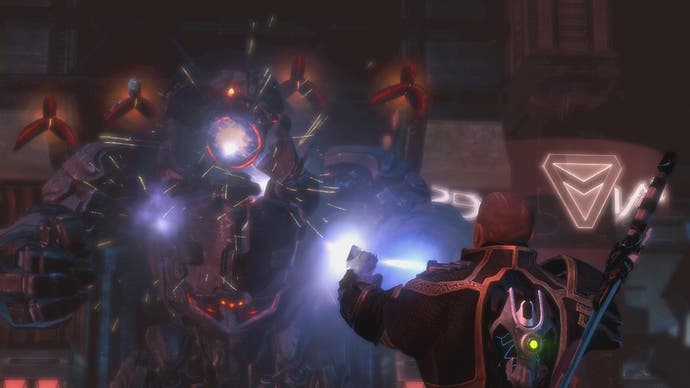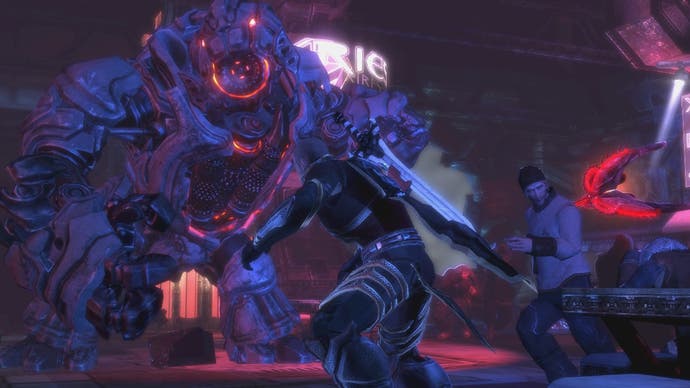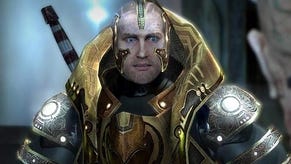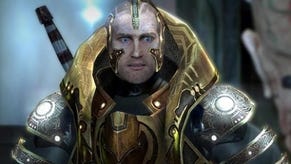GC: Silicon Knights' Denis Dyack
On a unified gaming format and why it will happen.
Of all the discussions at the Games Convention Developer's Conference, Denis Dyack's stood out partly because he was making a contentious point rather than a safe one, and partly because of the sheer degree to which his argument inspires discussion. At the time of writing, our write-up of his speech has been met with nearly 250 comments - more than three times as many as Julian Eggebrecht's keynote, which effectively had full-on pornography in it. Dyack believes that a unified gaming platform is inevitable, arguing that the history of commoditisation in other industries guarantees it. We sat down with Dyack, president of Too Human developer Silicon Knights, and put some of your and our queries to him.
I absolutely think they will never try to give that up, but market forces and the forces of monetisation have historically always overthrown those forces. You cannot stop commoditisation of technology, and the more toys and widgets that you put into something, it's almost inversely proportional to value.
Take a cell-phone as an example. When you first got them, they could do one thing - they could take calls. Now you can play games, you can get email, you can listen to music - but the prices of these things are continuing to drop as it's becoming commoditised, and now if you look at the cell-phone market generally there's hundreds of different kinds of phones and they're all pretty much the same, and they have no value, and they're given away with cell-phone plans.
The monopolistic model works well when someone dominates the market, because then you can predict where your sales are going to be. In this current games marketplace where the split is becoming very difficult, I think it's just going to accelerate the commoditisation, where the business model won't hold any more, and it's not a matter of whether Microsoft or Sony wants to stop; it's if the market forces can bear that type of monopolistic model, and I don't think they will. I think eventually it's going to fall through.

I think it would be something that would be very similar to the ESRB (Entertainment Software Ratings Board). Essentially you have all the publishers and developers getting together and saying 'here's the standard specifications that we're going to go with', and obviously I'm not saying that technology is going to stand still - I talked about how it's been shown that technology is logarithmically increasing - so every five years or so they would adjust the standard.
The really important thing is that it's just like a DVD player - when you buy that disc, you know it's going to play in that system, and it's that kind of specification that we have to have, and it's essentially a consortium of people with common understanding. Eventually, as the technology advances, the difference between the technologies is going to be so small that there might not even need to be an understanding.
These concepts - I guess they're micro and macro economics - aren't things that people particularly think about in the videogame industry. I certainly don't know a lot about those things. I come from a human interface perspective, I understand the history of technology and how technology affects society, and because of that I've been exposed to commoditisation and some of the good and bad effects of that, and these are really complex. You just can't sit back and really take it in very quickly.
Some would define the videogame industry from Nintendo on. If that's really the case, there hasn't been a lot of time yet in our industry. That's what I said earlier with Don's talk - I really liked it, but I think it really missed a lot of the long-term stuff and I think that we're not going to continue to cycle. I don't think we can, because we're getting to the breaking point now where games are becoming so expensive, under so many market pressures, that the old model won't hold any more.
One thing he said that I really loved was that the definition of a next-gen product is how big the marketing budget is. I thought that was absolutely true because, if you look at what I'm saying, there really is no true next generation. The technology's ceasing to matter, and the software is overcoming the value of the hardware.

It could be that we take longer because of the current market, but I would actually say the Wii, in most cases, if you take away the input device, it's really similar to the GameCube, and so they've got a single piece of hardware, and the question to ask is 'would that piece of hardware work on the 360?'
I said it wouldn't matter. At least I tried to say that. I think the answer to what you're saying is the whole idea of accelerating technology. A lot of people say that Moore's Law is going to stop the speed at which computers evolve, but Moore's Law and what it limits is going to be superseded by a different technology like optical computing or parallel computing or molecular memory. Another type of divergent technology will come in and take over that.
I think the controller for the Wii is one type of those types of technology. Whether we're using a monitor or we're having games directly piped into our retinas - because I think that will eventually occur - that is really not going to dictate how fast we come to a standardisation. And, actually, the more of these things that happen, the more likely standardisation is to occur.









